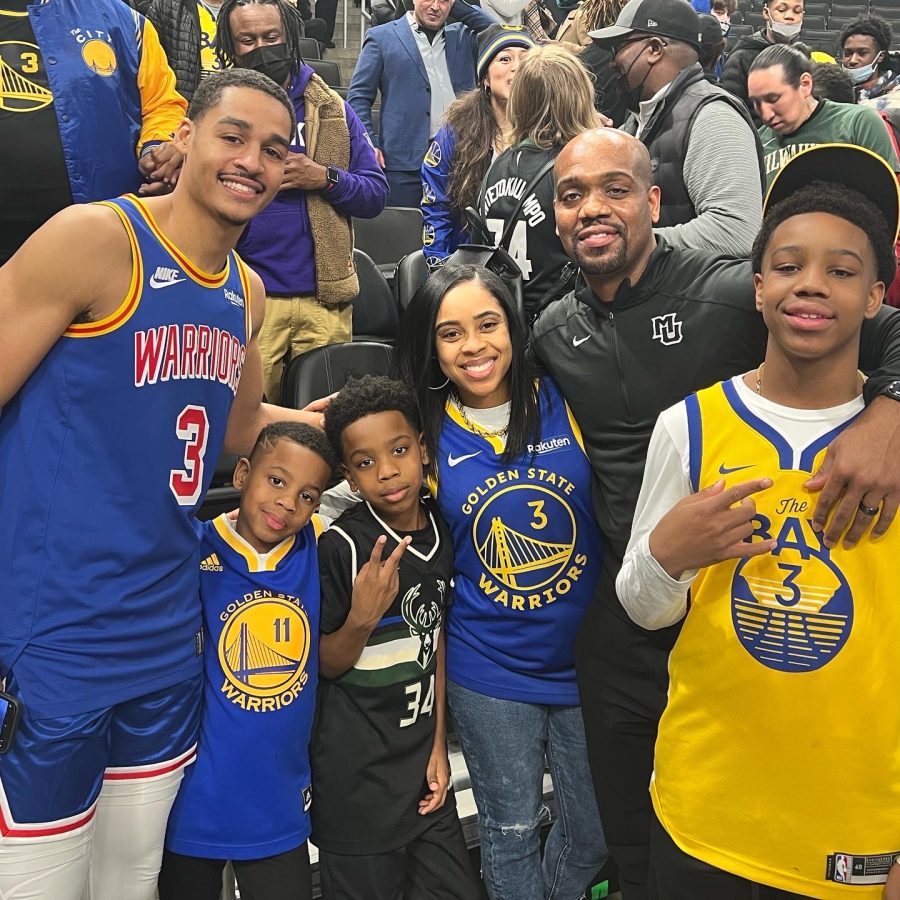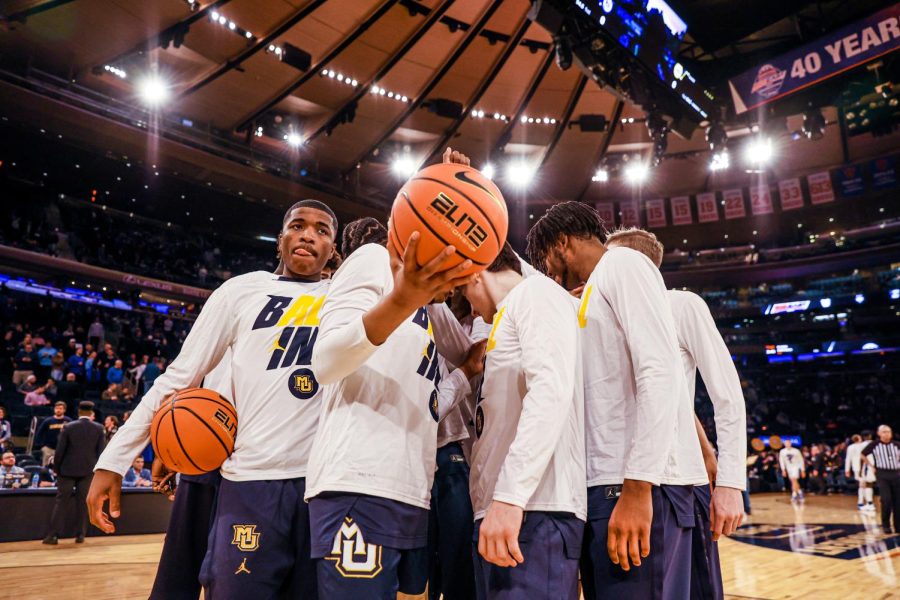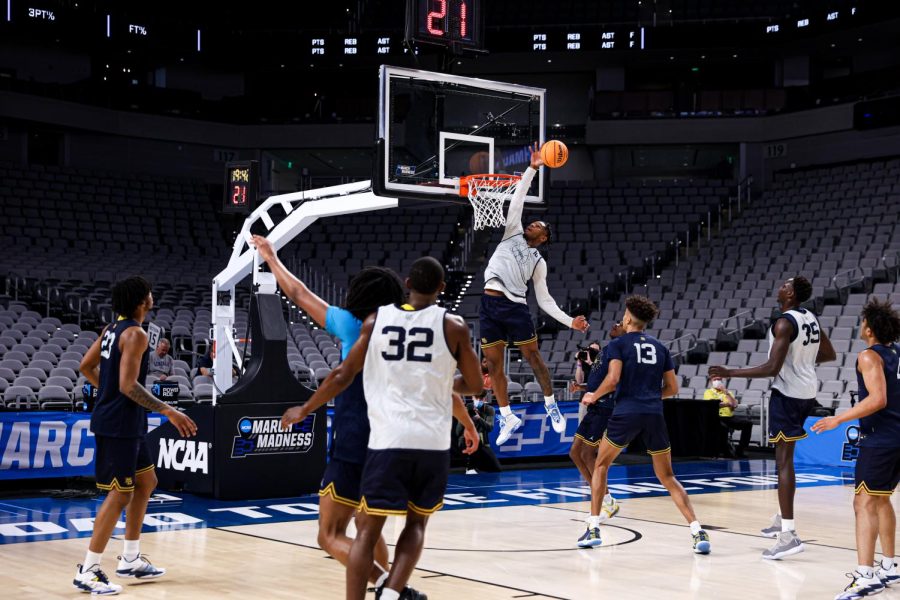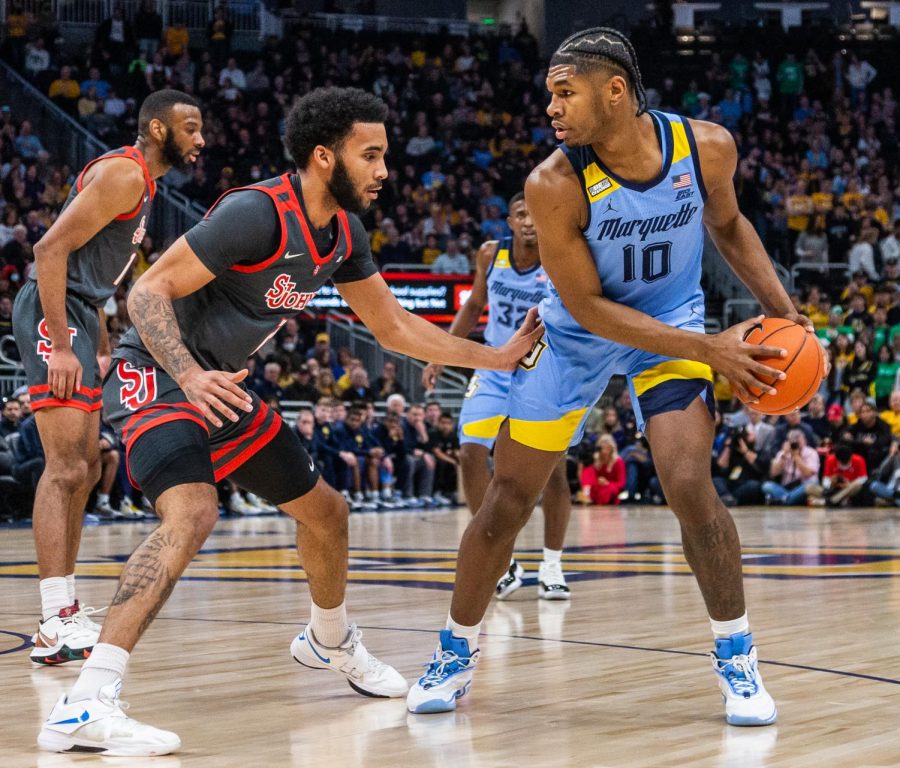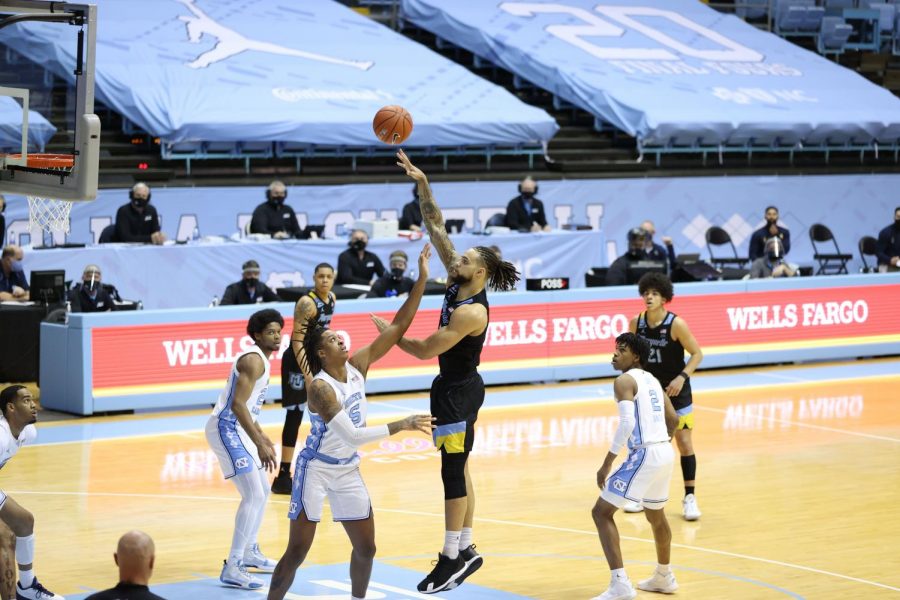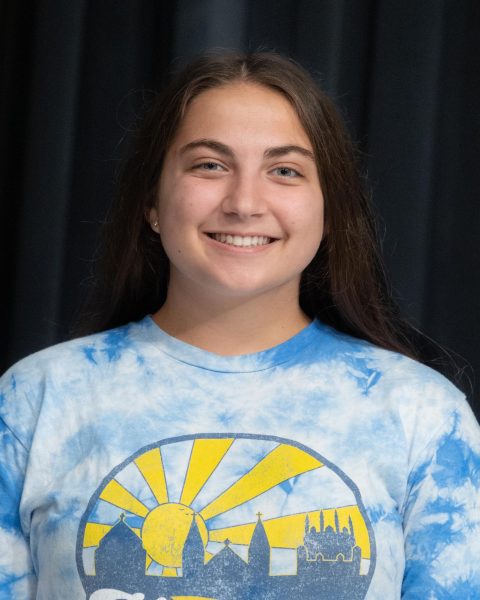Not everyone is born with the ability to lead and the skills to inspire and connect with younger generations.
But not everyone is DeAndre Haynes.
Haynes, is in his second year as an assistant coach on the men’s basketball team, said he learned both of those attributes from his father.
“My father was a leader, he always was. To see him, how he played on the floor or how he helped guys, he pushed me to be the leader I am today,” Haynes said. “Just growing up and learning from him and the leadership he had as a father stuck with me.”
Born and raised in Detroit, Haynes said he knew how important it was to have a role model, so he might make a name for himself and a difference in the world.
After high school, Haynes went to play Division I basketball at Kent State University.
Haynes said adjusting to the college level was hard, but his leadership came out and he was able to translate that to the court.
“I became a captain my sophomore year because I was always wanting to be more vocal,” Haynes said. “I think a lot of that stuff helped me in college, to try to lead my guys to a championship. And we ended up winning the MAC every year.”
Haynes was the first Kent State player to win MAC Player of the Year in 2006, while leading his team to its first NCAA Tournament since its 2002 Elite Eight run.
Following a six-year career overseas, Haynes found himself back in college. But this time, as a coach.
Haynes said he developed connections for future coaching jobs and there was one he could not resist: His alma mater.
“Kent State meant so much to me. It was a place that always felt like home,” Haynes said. “I knew what it took to win. I knew Kent State was a tough place, I just wanted to be a part of it. I had an opportunity to start coaching and get back to the young men.”
Haynes stayed at Kent State from 2012-2016 under one of his old coaches and current Kent State head coach, Rob Senderoff.
From his time as a player, Senderoff observed the skills that it took for an athlete to be a great leader, which translated to his success as a coach.
“DeAndre was always a special leader and had special leadership abilities,” Senderoff said. “He has an innate ability to connect with young people. His ability to connect and relate to guys is really unique.”
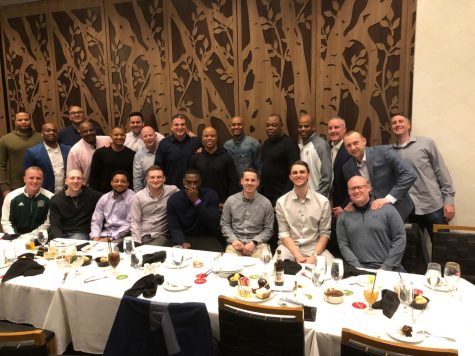
Although he left his staff, Senderoff said he knows how valuable Haynes was and that he is someone you want as part of your program.
“Everyone that’s ever talked with him is incredibly impressed with his basketball knowledge,” Senderoff said. “DeAndre has so many incredible attributes that you would want in a coach and in somebody that you want as part of your program.”
After leaving Kent State, Haynes moved around to different programs, including a stint at Michigan, where he won the Big Ten Championship in 2017, followed by a trip to the Final Four and National Championship game in 2018.
During his time at Michigan, Haynes helped develop current NBA players Duncan Robinson and Jordan Poole.
“The first thing that really stuck out about him was his energy and his daily approach,” Robinson said. “You quickly saw how naturally building relationships came to him. Constantly taking guys pulling guys aside and then trying to connect with them on more than just basketball.”
They’ve retained a relationship to this day.
“He (Haynes) just genuinely cares about you and wants to be a mentor,” Robinson said. “We FaceTime pretty regularly and I try to see him at least a couple of times a year. I consider him now as just a friend.”
Haynes went to Maryland in 2018 until ultimately joining Marquette’s staff when Shaka Smart took over in 2021.
While in College Park, Haynes touched a lot of his athletes, especially former Maryland guard Aaron Wiggins.
“Dre mentioned how he wanted to do whatever he could just kind of help us as individual players,” Wiggins said. “And just off the bat, you could kind of see how much of a player’s coach and how helpful he was and things that he could bring to a team.”
Coming in after his first-year, Haynes made it a necessity to help Wiggins with his confidence, even if it was at an all-time low.
“He’s one of the best guys that I’ve ever had as a coach, he has this ability to just instill confidence and encourages players,” Wiggins said. “I was struggling shooting the ball and percentages were low. But he found different drills and different things to fight through the adversities and challenges that we had and we ended up winning.”
Now in the NBA, Wiggins carries the lessons he learned from Haynes and credits him for his success and career.
Despite the geographical movement in his career, Haynes coaching style hasn’t changed.
“He (Haynes) was so consistent, he made sure he would hit me up after any event. He was a big part in the decision for me coming to Marquette,“ Marquette first-year guard Sean Jones said. “He’s a player’s coach, he tells you how it is, which is something you need a coach to do if you want to be great at this level.”
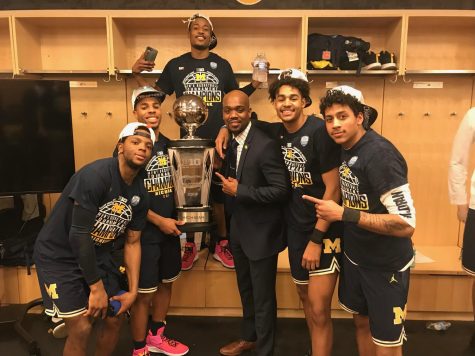
Haynes always has the same process: constant contact.
“He’s always hitting me up asking me what I’m doing,” Jones said.
The consistent calling, leadership and teaching are other things Haynes learned from his father and something Haynes’ dad still does today.
“He still leads me after every game, he’s still hard on me, he’s still pushing me to this day,” Haynes said.
Trash-talking and competing with his players is something Haynes said he takes pride in and hopes that it can be what a player needs to be great.
“I get on the floor, I squat with them, I still can play,” Haynes said. “You know Stevie (Mitchell) right now, I beat him in a game (of) one on one; he says it was an out-of-body experience.”
And sometimes it’s someone else on the other line calling Haynes for tips.
“He (Jordan Poole) calls me at one or two in the morning, still asking me questions about how to guard his weight or how to do this,” Haynes said. “I worked with him when he came back to Milwaukee, helping him on his midrange game.”
Poole is coming off a championship year with the Golden State Warriors and just signed a 4-year, $140 million extension with the Warriors. But for Haynes, that milestone felt like his own.
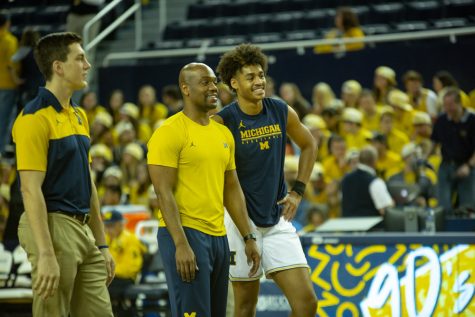
“When he won the championship, it’s like I won a championship,” Haynes said. “When he got drafted, it was like I got drafted.”
While Poole was at Michigan, Haynes was his position coach and the two formed a special bond.
“We have built a bond and connection, he’s like my brother at this point,” Poole said. “That’s something that I knew from day one. And it’s just not only me and him, it’s his family and kids and my parents.”
While under his coaching, Poole won the Big Ten Championship and ended up going all the way to the National Championship, feats that Poole credits Haynes for helping him accomplish.
“He was big for my development because he was my position coach and we would just work all the time,” Poole said. “We look up new moves and work lot on my individual game and development. We would always have late night phone calls about random things we would see during games.”
As a player’s coach, his influence goes so much further than the court. A man who makes you feel like family.
“He is really like a big brother,” former Marquette guard Darryl Morsell said. “He lets us come over to his house to chill with him and his family, or whether it’s going out to dinner, he made that effort to make sure we had that relationship. Not all coaches do that.”
When it’s all said and done, the only thing Haynes said he wants to leave behind is the impact of turning these boys into men.
“I don’t ask for much. I always try to serve people and give back, and I want to say I made an impact on you. And that’s bigger than anything,” Haynes said.
But for now, the focus remains on the court, to shape the next generation who walks out of the tunnel at Fiserv Forum.
This story was written by Kristin Parisi. She can be reached at kristin.parisi@marquette.edu or on Twitter @kristinparisimu.


